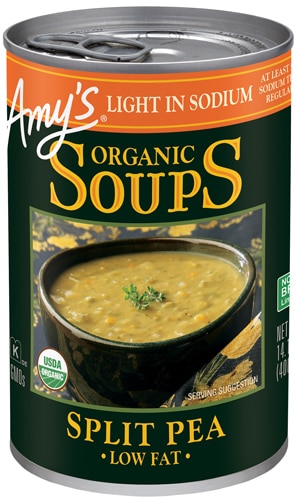For years, people have turned to juicing in hopes of cleansing their bodies, improving health and losing weight. But today, a hot new rival to the popular liquid diet -- "souping" -- is taking center stage.
A souping diet is predominantly or exclusively based on eating various soups. Like juicing, many people who "soup" aim to lose weight. But there are key differences in the two liquid diets.
People on a juicing diet extract the juices from whole fruits and vegetables to create a beverage rich in vitamins, minerals and phytonutrients.
In addition to weight loss, proponents of juicing claim that the health benefits include:
- Healthier skin
- Improved sleep
- Increased mental clarity
However, juicing is known to have some significant drawbacks, according to Maria Bella, a registered dietitian and founder of Top Balance Nutrition in New York.
"Most juices eliminate the fiber, which is essential for helping us stay full," Bella says.
Fiber also helps regulate digestion and has been shown to lower cholesterol levels and to protect the heart.
Bella also warns that many juices that sound healthy are high in calories, which may contribute to weight gain instead of weight loss.
Many people who go on juicing diets also complain that they are hungry all the time, because the juices contain nothing hearty to "chew" on.
All of these drawbacks have left people searching for an alternative. Enter the new trend of "souping."
The new 'juicing'?
Souping has some key advantages over juicing. "Souping may preserve the much-needed fiber and, in some cases, protein in the diet," Bella says.
Proponents of souping also contend that because vegetables generally have lower sugar content than fruits, souping is less likely than juicing to cause spikes in blood sugar.
Bella says examples of soups that pack a nutrient-laden punch include:
- Black bean, lentil, split pea soups have both protein and fiber.
- Butternut squash soup has fiber, vitamin A and vitamin C whereas
- Tomato soup has fiber and lycopene
Does souping make sense?
Eating healthful soups offers plenty of benefits for the body. But many nutritionists have sounded alarms about the wisdom of switching to an all-juice diet over the years, and they now are voicing similar concerns about souping.
Despite the nutrient boost that can be found in either juicing or souping, Bella does not think either approach should be a mainstay in your meal plan. She says flatly that she would not recommend souping to her clients.
"Just as (with) juicing, souping is a diet trend that may potentially lead to eating disorders or disordered eating," she says.
She also worries about people who use juicing or souping as a means to lose weight. "Once we go on a diet, we are likely to go off a diet," she says.
Rather than resorting to the extreme measures found in juicing or souping, Bella prefers to see people strike more of a balance. She says that while broth-based, low-sodium soups can be part of a balanced diet, it is important to include solid foods in your meal plans.
"The act of chewing sends signals to the hypothalamus that we are full," she says, referring to a region of the brain responsible for the production of many of the body’s key hormones, including those that regulate hunger and thirst.
Instead of strictly souping, Bella suggests starting meals with a small cup of soup and also having lean protein with "colorful produce."
Another alternative is to eat a medium cup of black bean, split pea or lentil soup with flaxseed crackers or 12 whole grain crackers, she says.




